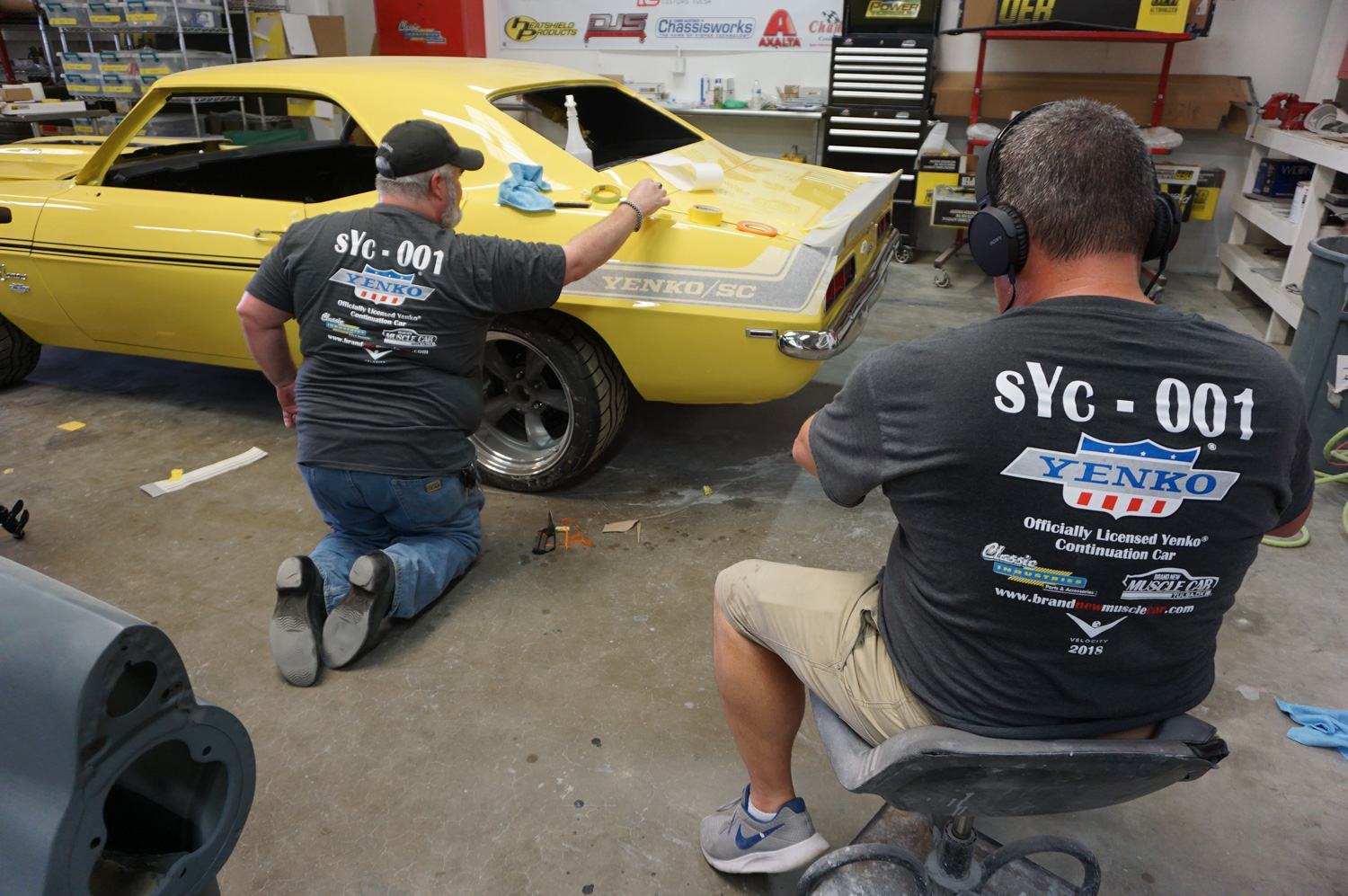Media | Articles
Licensed to Thrill: The inside story on today’s Yenko Camaros
Don Yenko, whose Chevrolet dealership in Canonsburg, Pennsylvania, famously built road-racing Corvairs and street/strip Camaros, Chevelles, and Novas in the late 1960s, perished in a plane crash in 1987. His legacy, however, continues beyond the cars he built, with brand-new Yenko-badged Chevys and newly built “continuation” versions of the original models.
Muscle car enthusiasts have been building Yenko clones for many years, but something different makes these newcomers legit: they’re officially licensed to use the name.
After Yenko died, the family closed the business, and following many years of non-use, the trademarks were legally acquired—and later affirmed through litigation—by General Marketing Capital Incorporated. GMCI licenses parts makers, including Classic Industries, to make reproduction Yenko parts, emblems, decals, and merchandise. Offerings later expanded to entire cars.
A deal with General Motors to produce a new Yenko Camaro in 2009 was squelched by the automaker’s bankruptcy, according to Ray Yager, executive vice president of GMCI. He says GMCI later approached Specialty Vehicle Engineering in Toms River, New Jersey, which began building officially licensed Yenko Camaros in 2015 and recently added the Corvette and Silverado pickup to its roster.
Marketplace
Buy and sell classics with confidence

For those of you who want more of a time machine, officially licensed new-build 1967, ’68, and ’69 Yenko Camaros are available only from David Miller’s Brand New Muscle Car, a restoration shop in Tulsa, Oklahoma. A third company, Heartland Customs in Purcell, Oklahoma, is licensed by GMCI to build full resto-mod and “fantasy” versions of classic Yenko models.
“We chose companies that we felt did outstanding work, had excellent reputations, and would represent the brand in a positive way,” Yager says.
Old is new again
Miller, who’s been restoring muscle cars since the 1980s, started Brand New Muscle Car to build “new” versions of the classics using Dynacorn reproduction bodies.
The 1967–69 Yenko Continuation Camaros start at $149,995 but zoom past $200,000 with the multitude of options offered. The baseline build essentially copies the original Yenko Camaros, but the GMCI license gives Miller leeway in offering modern upgrades, as long as changes “honor the Yenko legacy,” he says.

The license requires that every continuation Yenko Camaro must have a 427-cubic-inch Chevrolet engine, but it can be the original type L72 425-hp big-block, a small-block built out to 427 cubic inches, or even an LS7, the modern 427 used in the previous Corvette Z06 and fifth-gen Camaro Z28. Options go up to 1000 horsepower. In addition to the choice between a Muncie M-21 four-speed or M40 Turbo-Hydramatic (as on the originals), options include five- and six-speed manuals and four-, six- and eight-speed automatics.
Beyond the standard Camaro suspension, the customer can order front coil-overs and a four-link rear or independent rear, all built by Chris Alston’s Chassisworks in Sacramento.
Wheel choices include 15 and 17 inches in the original styles that Yenko offered, along with 18-inch wheels, which offer more modern handling. If the standard drum brakes are a head scratcher, that’s how the originals came unless you chose optional discs. Miller offers factory-style and larger Wilwood discs.
For everyday comfort, power windows and air conditioning are available, with controls hidden to keep a stock interior appearance.
The ultimate Yenko tribute

Each Yenko continuation car is built to order and gets a dash mounted VIN plate and a cowl plate, plus a small Yenko number plate on the doorjambs, as on the originals. The buyer receives a certificate of authenticity. Registration requirements can vary from state to state (and country), so customers need to check before ordering to ensure they can enjoy their car as they please.
The first ’69 Yenko that Miller built was done with a new title and VIN, which he says is the easiest way. (Velocity Channel covered the first build for a series of episodes this season. Check your local cable TV listings.)
“They made 198 1969 Yenko Camaros, but our cars start at 001, not 199,” Miller says. “We make it very clear that this is a continuation.”
Yenko guru Ed Cunneen, who has owned examples of every Yenko Chevy, sees the continuation cars as a positive development.

“Charles Caleb Colton coined the phrase ‘Imitation is the sincerest form of flattery,’” Cunneen says. “I believe there is a general consensus among Yenko owners that creating a new Yenko supercar based on the original design is a sincere compliment and continuation to Don Yenko’s legacy.”
All-new Yenkos, five decades later
Meanwhile, the new-generation Yenko Camaros from SVE already have a track record for success.
“This is our fifth year doing Yenko Camaros,” SVE’s David Hamburger says. “We’ve done 50 a year. For 2018, we did 25 each of the 825-horsepower Stage I and 1000-horsepower Stage II.”
You can order one through any Chevy dealer that works with SVE, but production is limited. The Stage I package for 2018 was $46,995 in addition to the cost of a Camaro SS; the Stage II was $66,995 on a Camaro SS with the 1LE option. In September 2018, SVE plans to announce details and pricing for the 2019 Yenko/SC Camaro.

Performance buffs will recognize the Hamburger name. David’s father, Ed, was a noted Mopar builder and racer in the 1970s and in 1986 formed SLP to build high-performance parts for Camaros, Corvettes, and Firebirds. SLP produced complete car conversions, including the Firebird Firehawk and the fourth-gen Camaro SS under contract to GM. The company later became SVE.
“GM provides the basic vehicle warranty, and we provide the powertrain warranty,” Hamburger says.
Classic or modern, the new-build Yenko Camaros are sure to stay on enthusiasts’ wish lists for a long time to come.




